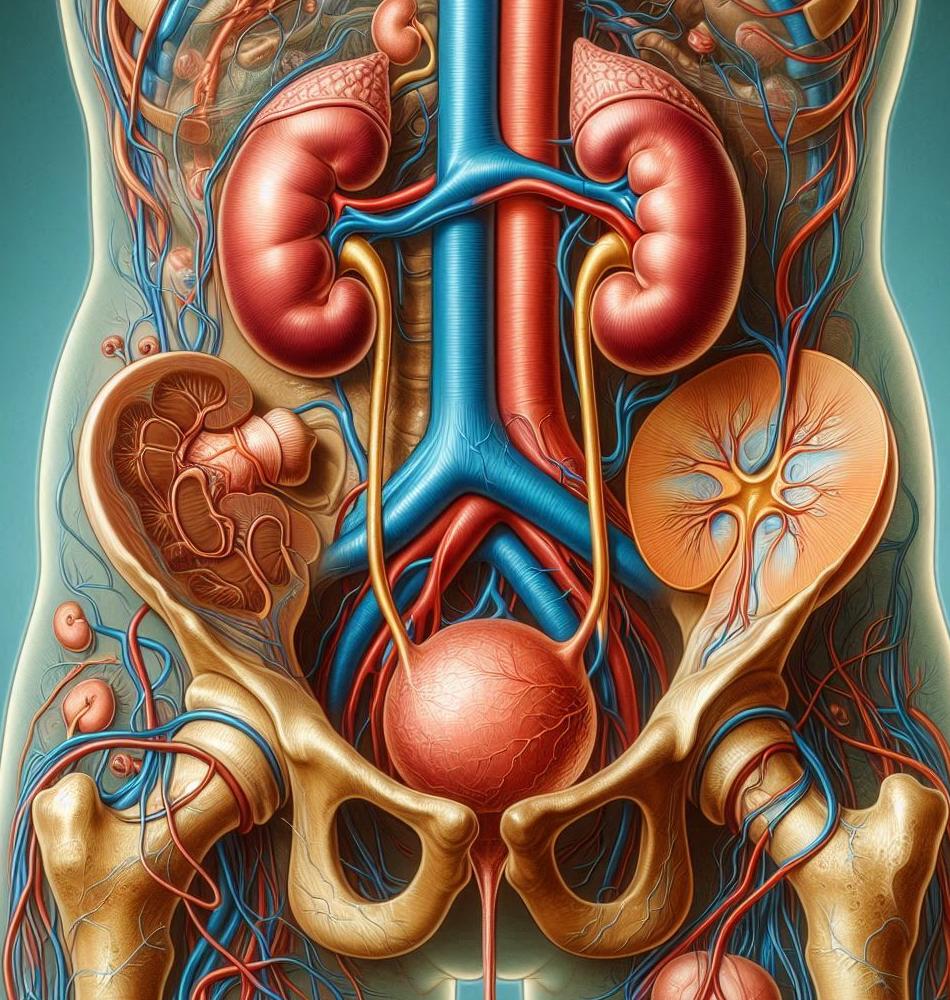From UTI to Kidney Infection: Understanding the Connection 🩺
When faced with the discomfort of a Urinary Tract Infection (UTI), many people wonder about the potential complications. One such concern is whether a UTI can escalate into a more serious condition like a kidney infection. As trivial as a UTI may seem, it can sometimes pave the way for more severe health issues if not treated properly. This article aims to clarify the connection between UTIs and kidney infections, what you should be aware of, and what preventive measures can be taken.
Understanding the Basics of UTIs and Kidney Infections 🦠
A UTI affects the urinary system, which includes the kidneys, ureters, bladder, and urethra. The most common type of UTI is cystitis, which is an infection of the bladder. A kidney infection, medically known as pyelonephritis, occurs when bacteria travel up the urinary tract and infect one or both kidneys.
Symptoms of a UTI vs. Kidney Infection 🌡️
Recognizing the symptoms of a UTI and a kidney infection can help in taking timely action. Here are some common indicators:
UTI Symptoms:
- Frequent urge to urinate- Burning sensation when urinating- Cloudy or strong-smelling urine- Small amounts of urine expelled- Mild lower abdominal painKidney Infection Symptoms:
- High fever- Chills and shaking- Pain in the side, back, or groin- Nausea or vomiting- Fatigue and malaiseIf left untreated, UTIs can indeed lead to kidney infections, especially in vulnerable populations such as the elderly, pregnant women, and those with compromised immune systems.
How Does a UTI Progress to a Kidney Infection? 🧩
A UTI can become a kidney infection through a direct ascent of bacteria from the bladder. Here’s how this typically occurs:
Potential Pathways for Infection: 🔍
1. **Bacterial Ascension**: Bacteria from the bladder can travel up the ureters to the kidneys.2. **Obstructions**: Kidney stones or significant anatomical abnormalities can block normal urine flow, increasing the risk of kidney infections.3. **Weakened Immune System**: Individuals with a suppressed immune system are more susceptible to infections spreading.Risk Factors to Consider 🔔
Several factors may increase the chances of a UTI escalating into a kidney infection:- Previous history of UTIs- Anatomical abnormalities in the urinary tract- Diabetes or other chronic illnesses- Lack of proper hydration- Use of certain birth control methods, such as diaphragmsPrevention is Key: Five Simple Tips! 💧
Preventing UTIs can significantly reduce the risk of kidney infections. Here are some healthy practices to consider:
1. **Stay Hydrated**: Drink plenty of fluids to help flush bacteria out of the urinary system.2. **Practice Good Hygiene**: Wipe from front to back after using the bathroom to minimize bacterial transfer.3. **Urinate After Intercourse**: This can help expel bacteria that may have been introduced during sexual activity.4. **Avoid Irritants**: Reduce the use of feminine hygiene products that can irritate the urethra.5. **Wear Breathable Underwear**: Choose cotton over synthetic fabrics to maintain optimal dryness.When to Seek Medical Attention? 🚑
If you suspect that you have a UTI or if you've been treated for one and symptoms persist, it's crucial to consult a healthcare provider. Symptoms worsening or the appearance of new symptoms may indicate the infection has progressed to the kidneys.
Common Questions About UTIs and Kidney Infections ❓
- Can I prevent a UTI from becoming a kidney infection?- How is a kidney infection diagnosed?- What treatments are available for a kidney infection?- Are certain populations at higher risk for kidney infections?- What are the long-term effects of kidney infections?Diagnosis and Treatment: What to Expect 💊
Doctors typically diagnose a UTI or kidney infection through a urinalysis to check for bacteria, blood, or pus. Imaging tests might be done if structural abnormalities of the urinary tract are suspected.
Treatments for UTIs and Kidney Infections ⚕️
- **Antibiotics**: These are the standard treatment for both UTIs and kidney infections.- **Over-the-Counter Pain Relief**: Medications like ibuprofen can help relieve symptoms.- **Hydration**: Increasing water intake to aid the healing process.Complications to Be Aware Of ⚠️
While most can recover from a kidney infection with prompt treatment, there are potential complications to be aware of:
- **Kidney Damage**: Severe or recurring kidney infections can lead to long-term kidney damage.- **Sepsis**: This life-threatening condition can develop when bacteria spread to the bloodstream.Living with History of UTIs: Tips for Monitoring Your Health 🔍
If you have a history of UTIs, it’s essential to stay vigilant. Keeping a health diary noting any symptoms can provide crucial information to your healthcare provider.
Consulting with a Specialist 📄
Consider seeing a urologist if you experience frequent UTIs or if complications arise. They can offer more targeted guidance and treatment options.Conclusion: The Importance of Awareness 🧠
In conclusion, understanding the link between UTIs and kidney infections is vital for maintaining urinary health. While the two conditions are distinct, the escalation of a UTI to a kidney infection is a real concern. By being aware of the symptoms and risk factors, you can act quickly should symptoms occur.
Moreover, diligent preventive measures can help ward off recurring infections. If you experience any unusual symptoms, don’t hesitate to seek medical advice. Knowledge is power when it comes to your well-being.
.png)






